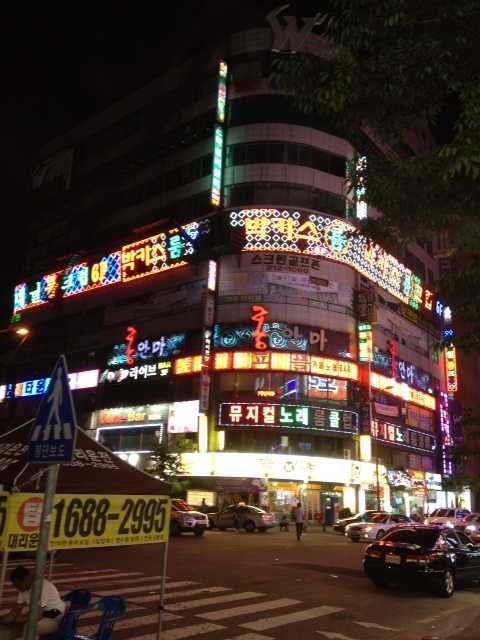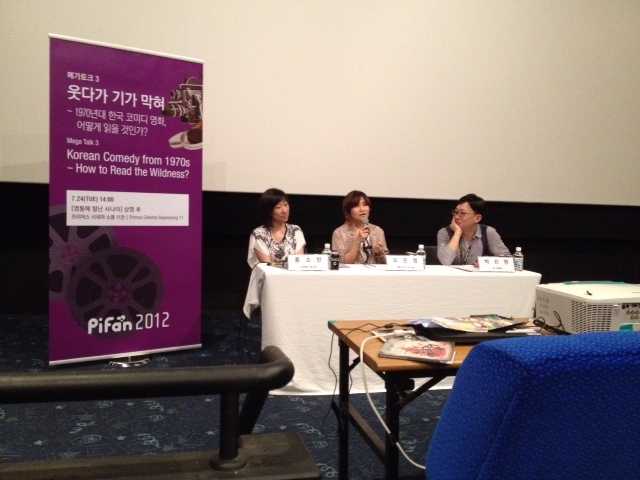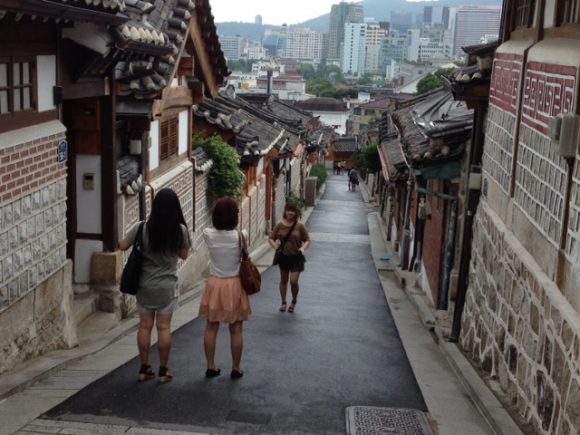
I’m back from Korea, after one more night in Seoul and four days at the Puchon International Fantastic Film Festival (PiFan). Seoul is a gargantuan, overwhelming metropolis in which every building seems to be vying for your attention. While trying to work in my hotel room I could be distracted by no less than three huge video screens beaming advertisements from nearby rooftops. Adding to the city’s already jumbled skyline are more and more avant-garde, deliberately incongruous buildings dubbed “aliens” in architectural circles. Across the street from my hotel sat one of the most notorious: Seoul’s brand-new City Hall, which looms like a giant wave about to crash over its soon-to-be dismantled, Japanese occupation-era predecessor, in a perhaps deliberate reference to the Korean Wave (hallyu) that has inundated Asia with Korean pop culture in recent years.

Puchon, a small satellite city near Seoul, is a different experience entirely: a jumble of lights and garish signs enticing the visitor to all sorts of temptations. Indeed, Puchon has a somewhat seedy reputation, making it the perfect setting for PiFan, a festival specializing in the extremes of genre cinema: comedy, action, horror, sex, and violence. The fact that festival guests (your correspondent included) are put up in the city’s notorious “love hotels” only adds to the atmosphere.
In addition to the new releases, I was very intrigued by a special retrospective section devoted to Korean comedies of the 1970s. That decade is generally considered a low point in Korean cinema history, but PiFan’s program, along with Udine Far East Film’s 1970s series dubbed “The Darkest Decade,” indicate, if not a revival, then at least an attempt to understand the ways filmmakers reacted to the political censorship and public indifference of the time, ideas that were illuminated during an interesting panel discussion following one of the screenings.

Having sampled these films at both Udine and PiFan, I can say that most of them may not be “good” by traditional standards, but watching a loud, silly comedy from the ’70s can be as much a cultural learning experience—in its own way—as gazing upon the Buddhas in the National Museum.



